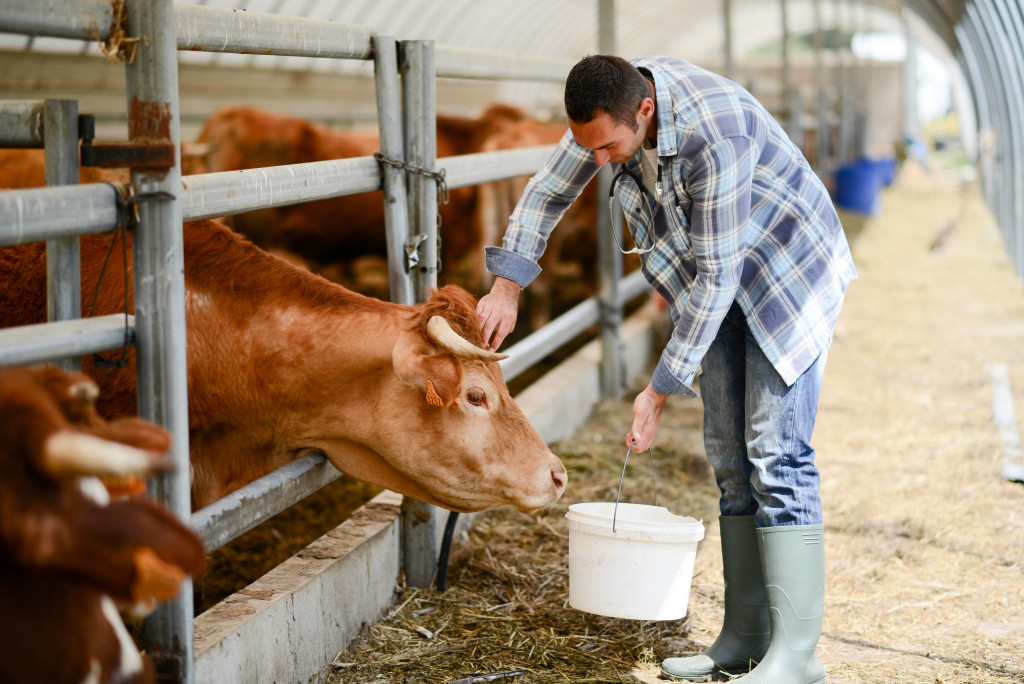Farming is a complex profession. Not only do you have to contend with the day-to-day challenge of keeping your animals healthy and your crops growing, but you also have to be aware of the ever-changing landscape of regulations, best practices, and public opinion. In short, it’s a lot to keep track of.
That’s why it’s crucial to be well-versed in how to be a responsible farmer. By following these best practices, you can be confident that you’re running a proper and sustainable operation.
The Basics of Humane Animal Husbandry
Humane animal husbandry is both an ethical imperative and good business practice. Not only is it the right thing to do, but consumers are increasingly interested in knowing that the animals they eat are treated well throughout their lives.
There are many ways to ensure that your animals are treated humanely, but below are some of the most important ones to keep in mind:
Source from a reputable breeder.
Of course, you can’t control how the animals were treated before they came into your care. But you can control where you get them from. Make sure to source your animals from a reputable breeder with a history of humane treatment.
Suppose you need cattle for beef. In that case, sourcing from trusted Charolais bull breeders is an excellent way to ensure that your animals have been treated well. It will also give you peace of mind knowing they’re healthy and high-quality.
You can find reputable breeders by searching online, asking other farmers in your area, or contacting your local agricultural extension office. This way, you can be confident that your animals have had an excellent start to life.
Provide adequate shelter.
Your animals need somewhere safe and comfortable to sleep, rest, and escape bad weather. So, you must ensure their shelters are well-ventilated, clean, and spacious enough for them to move around freely.
Because animals can’t tell you when they’re uncomfortable, it’s essential to regularly check their shelters and ensure they’re up to your standards. In doing so, you can catch any potential problems early and prevent them from becoming more significant issues.
Practice stress-reduction methods.
Low-stress handling techniques help minimize fear and anxiety in animals, which can lead to improved health outcomes. That’s why learning and implementing these methods on your farm is essential.
Some of the most common low-stress techniques include using slow and deliberate movements around animals, handling them from behind, and speaking to them calmly. By reducing the stress your animals feel, you can keep them healthy and happy.
Feed them a balanced diet.
A nutritious diet is essential for animal health, so you must ensure your animals get all the nutrients they need. Depending on their species and age, they may require different types of food.
For example, baby animals will need milk or a milk replacer, while adult animals need hay, grain, and other roughage. You should also regularly monitor your animals’ weight to ensure they get enough to eat but not too much. With a little trial and error, you’ll be able to figure out the perfect diet for your animals.

Managing Your Farm’s Environmental Impact
As a farmer, you have a unique opportunity to nurture and care for the land that sustains you and your crops and animals. But with that opportunity comes responsibility; it’s up to you to ensure that your farming practices are sustainable and don’t degrade the quality of the land or water over time. Here are some tips on how to do just that.
Conserve water.
Water is essential for life, so it’s important to use it wisely on the farm. Adopting drip irrigation or cover crops can help reduce water use without compromising crop yields. This way, you can save water and money while still producing a high-quality product.
Conserve energy.
Running a farm takes a lot of energy, so it’s essential to be efficient in how you use it. One way to do this is using solar power to run some or all of your farm equipment. This renewable resource can help reduce your reliance on fossil fuels, saving money and benefiting the environment. As a result, you’ll be able to run a successful farm while also being eco-friendly.
Minimize chemical use.
From fertilizers to pesticides, chemicals are a necessary part of farming. But that doesn’t mean you should use them indiscriminately. Whenever possible, choose natural solutions. These are typically just as effective as their chemical counterparts but are much better for the environment.
It’s also essential to follow the instructions on any chemicals you use. Applying them correctly will reduce the amount you need, which is better for your crops, animals, and the environment.
Farming is a complex profession with many moving parts—but being a responsible farmer doesn’t have to be complicated. By following some basic best practices in animal husbandry and environmental stewardship, you can be confident that you’re doing your part to run a sustainable and ethical operation. Thanks for reading!




